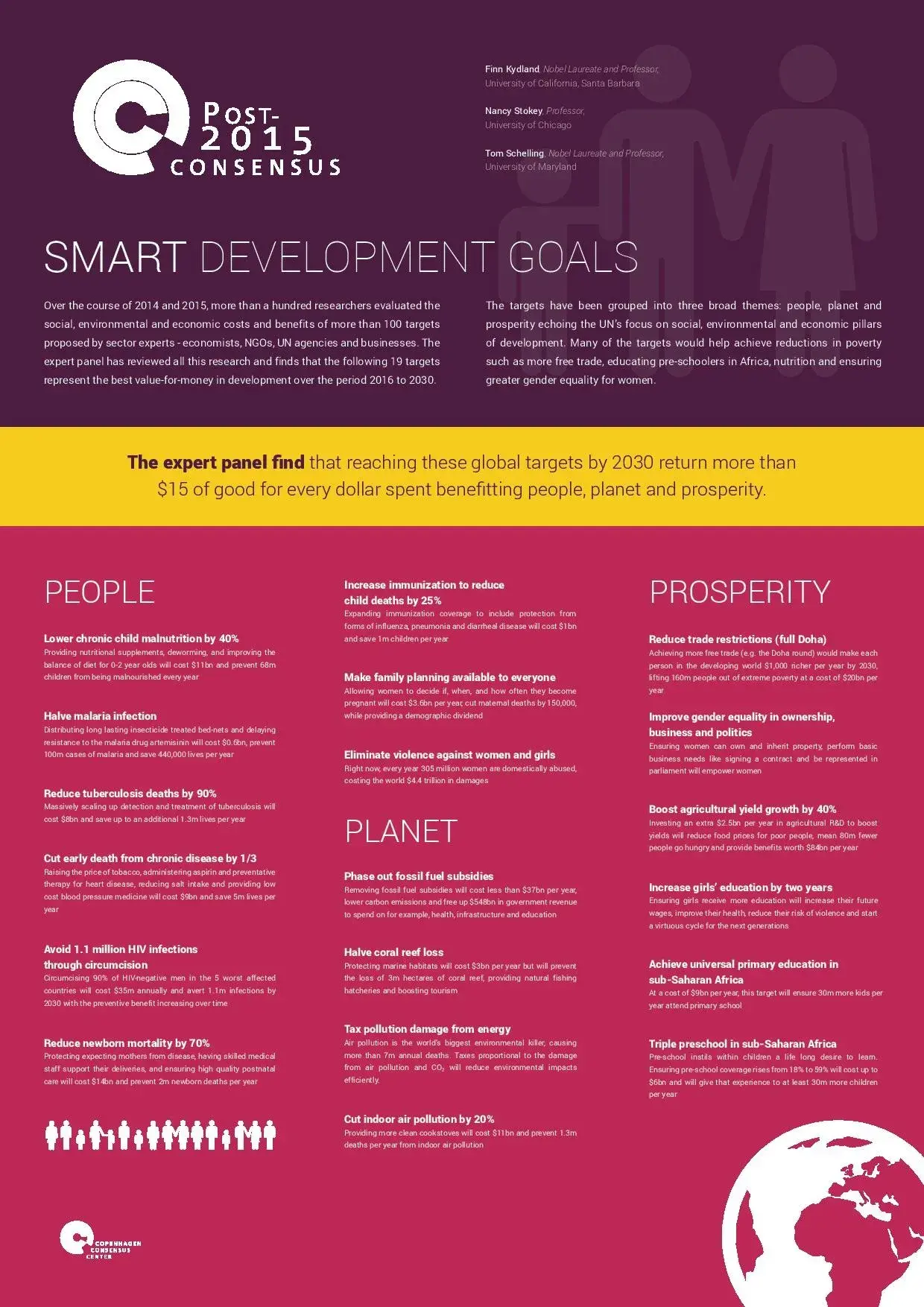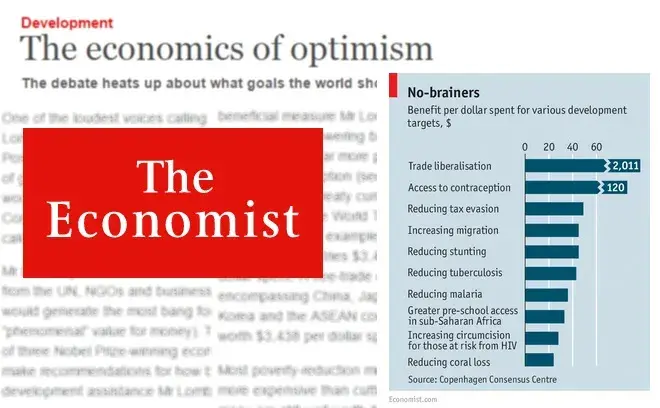Energy: What's the smartest SDG target?

As reported by TIME, the Copenhagen Consensus has examined the costs and benefits of energy access targets. The key message: increasing access to modern energy is an important driver of development and could save millions of lives each year by reducing indoor air pollution (which currently kills 4.3m per annum according to WHO).
Doubling RD&D will allow future generations to benefit from clean and cheap energy, improving living standards and health while reducing climate change, yielding $16 worth of benefit for every dollar spent. Phasing out fossil fuel energy subsidies is an effective way to reduce CO₂ today, providing more than $15 of benefit per dollar spent, and freeing up more than $544 billion in government resources. Finally providing access to modern cooking fuels to 30% of the current unserved population will help 780 million people and save over a million lives for just $11 billion per year. Each dollar spent will do $15 of good.
An ineffective goal is to double renewables now – this will have high costs, help less, and do little to cut CO₂.
You can read all the papers on energy here and download the one page PDF here.
The smartest targets for the post-2015 development agenda
What are the smartest targets for the post-2015 development agenda?
In a world of limited resources, we can’t do everything, but how should we prioritize? The Copenhagen Consensus Center provides information on which targets will do the most social good relative to their costs. The final decision on choosing goals will definitely rest on a number of factors, not just economics – but knowing the costs and benefits provides an important piece of information.
The Post-2015 Consensus brought together, renowned experts from the UN, NGO and private sectors with 60 teams of economists to produced 100+ research papers to establish the most effective targets for the post-2015 development agenda within 22 core issue areas: Air Pollution, Biodiversity, Climate Change, Conflict & Violence, Data for Development, Education, Energy, Food Security, Gender Equality, Governance & Institutions, Health: Chronic Diseases, Health: Health Systems, Health: Infant Mortality & Maternal Health, Health: Infectious Diseases, Infrastructure, Illicit Financial Flows, Nutrition, Population & Demography, Poverty, Science & Technology, Trade, and Water & Sanitation.
An Expert Panel including two Nobel Laureates has reviewed all of this research and identified 19 targets that represent the best value-for-money in development over the period 2016 to 2030.
Only have three minutes? Watch our introduction video to the Post-2015 Consensus project.

Making prioritization a factor in the post-2015 debate
An overview of Copenhagen Consensus' ground-breaking research which is shaping the thinking for the 193 governments about to prioritize the smartest development goals for 2016-2030. If you've just read the article in The Economist you might be interested in exploring more about our project, and the research we've undertaken so we have put together an online supplement with more in-depth information.


